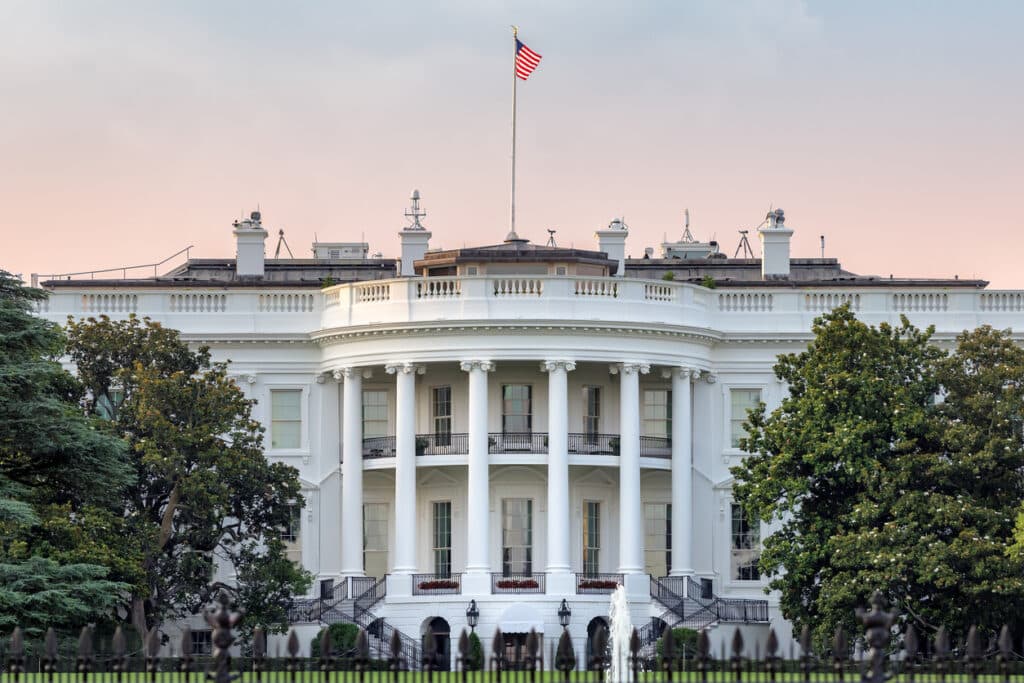Two months into his first term, President Biden has yet to announce any nominees to fill the numerous inspector general (IG) vacancies across the federal government. There are currently thirteen IG positions awaiting presidential nominees. These include the Department of Defense Office of Inspector General (OIG), the Department of Labor OIG, and the Office of the Inspector General of the Intelligence Community.
The IG vacancies and statistics on how long each position has been vacant are compiled at Oversight.gov, a website that consolidates reports from the dozens of IGs across the government in order to give the public easier access. Some vacancies have opened up in the last year, while others stretch back to the Obama administration. Presidential nominees for IG must also be confirmed by the Senate.
“It’s a shame that, two months into President Biden’s term, there are still so many inspector general vacancies and so few nominees to fill those roles,” Caitlin MacNeal, communications manager for the watchdog group Project on Government Oversight told Government Executive, who reported on the vacancies. “Inspectors general are crucial to an ethical, effective federal government, as Congress and the public rely on them to investigate and expose waste and misconduct.”
OIGs with vacancies are headed by acting inspectors generals and are thus still able to function. This makes the IG vacancies less detrimental than those at the Merit Systems Protection Board, which is unable to issue final rulings without Senate-confirmed presidential nominees on the Board. However, there are a number of reasons why IG vacancies can be detrimental to the missions and goals of OIGs.
For one, acting IGs “are often less likely to hire additional necessary staff and take on controversial investigations,” MacNeal states. Furthermore, in 2018 the Government Accountability Office (GAO) published a survey of OIG employees working under acting IGs. According to the survey, a majority of OIG staff “indicated that having acting IGs generally did not impact the OIGs’ ability to carry out their duties and responsibilities.” However, a number of respondents suggested that acting IGs can negatively impact the staff morale and can reduce the office’s independence, or at least the appearance of independence. One respondent told GAO that “[t]here may be an appearance that an acting IG is less independent from the agency, particularly where he or she is seeking to become the permanent IG and needs the endorsement of the agency to move forward. This scenario could create an appearance of, or an actual, conflict of interest.”
According to a December 2020 publication by the Council of the Inspectors General on Integrity and Efficiency (CIGIE), the new administration should “promptly” fill all IG vacancies. According to CIGIE, “[t]he IG within each agency is a critically important position, and vacant positions should be filled with a permanent IG as quickly as feasible.”
Currently, the IG vacancies awaiting nominees from President Biden are at the Export-Import Bank OIG, the Central Intelligence Agency OIG, the Department of Defense OIG, the Office of Personnel Management OIG, the Tennessee Valley Authority OIG, the Department of Education OIG, the Department of Health & Human Services OIG, the Department of the Treasury OIG, the Federal Communications Commission OIG, the Office of the Inspector General of the Intelligence Community, the Department of State OIG, the Department of Labor OIG, and the U.S. Agency for International Development OIG.
Under the Inspector General Act of 1978, nearly every federal agency has an IG who is tasked with preventing and detecting waste, fraud, and abuse within the agency. While technically located within the respective agency, OIGs operate independently from the agency when conducting audits, investigations, evaluations, and special reviews. IGs play a key role in investigating whistleblower complaints regarding misconduct within their respective agencies. Some IGs are also responsible for educating management and employees about whistleblower rights.
“It isn’t talked about enough, but the roles of whistleblowers and inspectors general are symbiotic. Securing inspector general independence helps keep good government consistent and provides whistleblowers the ability to continue coming forward to combat waste, fraud and abuse throughout the federal government,” Senator Charles Grassley (R-IA) said in a statement to Whistleblower Network News after reintroducing the Securing Inspector General Independence Act on March 4 alongside Senator Gary Peters (D-MI).
The Act aims to protect the independence of IGs by requiring any administration to give “substantive rationale, including detailed and case-specific reasons” before removing an IG. Both the Obama and Trump administrations drew criticism for their removals of IGs. “There’s really only bad precedent from prior administrations ignoring the inspector general protection law,” said Senator Grassley, Ranking Member of the Senate Judiciary Committee. “Worse still is that a court upheld an Obama administration action, and the Trump administration was able to apply the same standard. Congress should expect more of the same if it doesn’t act to clarify the law. Our bill spells out Congress’ expectations from the Executive Branch when the president decides to remove an IG, and prevents conflicts of interest that can arise when IGs are replaced with political appointees.”
Read:
Inspector General Vacancies on the Oversight.gov website.
